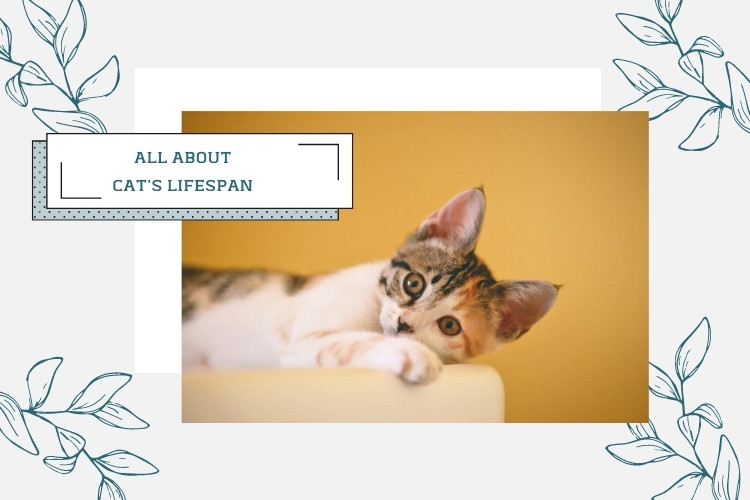Some of the links on our website are affiliate. By making a purchace via our links, you help us create new content and support animal shelters and funds
How long do cats live?

Photo by Cong H
Cats are expected to live for quite a long time when they get the proper care. Cared for by a good owner, a cat will live between 12 and 18 years on average.
The exact lifespan statistics for cats are disputed, though.
Some say that cats' life expectancy is ten to fifteen years. Others claim that they can live for up to twenty years or even longer.
And all this is true.
You need to consider many things that may increase or reduce the lifespan of a cat.
The factors that have an impact on how long the cat will live are quite interesting. As you might expect, the breed of the cat plays a role. Other factors include the cat's diet and activity, how mentally stimulated the cat is, and more.
If you've recently bought a pet cat or you're thinking of getting one, you might be trying to learn more about them. So read on to find out more about cat’s life expectancy and important care tips.
Cat breed and lifespan
One big reason why cat life expectancy data differs so much sometimes has to do with the breed of the cat.
Some cat breeds such as American shorthair, Siamese, Savannah, and Russian blue are more likely to live as long as twenty years.
There are also cat breeds that are more likely to live shorter lives. Maine coons usually live ten to thirteen years while the Manx cat’s life expectancy is eight to fourteen years.
Wild cats (stray cats) don't live as long as indoor pet cats. It's said that a stray cat will typically live two or three years less than indoor cats.
Calculate how old a cat is in human years.
There's still more to learn about cat life expectancy. Keep reading to learn about health issues as well as important tips to help your cat live a long and healthy life.
What else affects cat life expectancy?
So many things can impact the life expectancy of cats. Knowing about these factors can help you to keep your eyes open for certain things.
- The diet of the cat has a big impact on how long it'll live.
- How much exercise the cat gets will also play a role.
- Cats that have better mental health will live longer.
- Regular vet visits help cats to live longer.
- Having your cat spayed or neutered can help it to avoid some diseases.
Common health issues shortening cat’s life
There are also health issues that can shorten a cat's life. Knowing about potential health problems can make it simpler to take the right actions when you notice something is wrong with your cat.
- Cancer
Cancer has the potential to kill cats. Just like humans, cats can get cancer in various parts of their bodies. Some forms of cancer might be linked to genetics, too.
- Heart Issues
Sometimes heart conditions are caused by genetic factors. But it’s not the only reason.
For example, a cat can develop heart issues due to being overweight and sedentary. This is why it's important to play with your cat and give it opportunities to exercise.
- Diabetes
Diabetes has been known to be dangerous for cats, too. Often, obesity is the reason.
Be careful not to feed your cat more than is necessary. Cats need to eat a balanced and healthy diet to thrive.
- Kidney Problems
Kidney problems have the potential to cause your cat pain, and they can lead to death. Chronic Kidney Disease (CKD) involves a cat's kidneys failing.
There are many potential causes of this. It could be infections, urinary tract infections, high blood pressure, exposure to certain toxins, and even genetic factors.
- Feline AIDS
Feline AIDS is a very serious retrovirus that can kill cats. It decimates a cat's immune system and makes it very vulnerable to things such as infection, cancer, and other diseases.
It's a difficult thing to detect and diagnose. To lessen the likelihood that your cat will get feline AIDS, it's best not to allow it to come into contact with stray cats.
How to extend your cat's lifespan
Extending your cat's lifespan is about making good choices and caring for it properly. If you understand how to approach caring for your cat, it's much more likely that it'll live a long and happy life in your home.
- Consult a veterinarian to create a balanced diet for your cat. Overfeeding cats can cause obesity.
- Take your cat to see a vet every so often. Regular checkups can help to catch health issues before they become huge problems.
- Ensure that your cat gets some exercise. There are many toys that you can buy to help cats play and stay healthy. Mental stimulation is also important for a cat's health.
- Getting cats spayed or neutered can protect them from various illnesses.
- Don't let your cat spend time outdoors. Pet cats are safest when they're kept indoors.
Now you know everything that you need to know about the lifespan of cats. You can do your best to keep your cat safe now so that it can live as long as possible.

